- About Ramapo
- Academics
- Admissions & Aid
- Student Life
- Athletics
- Alumni
- Arts & Community
- Quick Links
- Apply
- Visit
- Give
Educator Workshop, Fall 2023
Holocaust and Genocide Educator Workshop
“Why Study the Holocaust Now”
Resources and Links from our Educators
December 6 at Ramapo College, 8:30 AM – 3:00 PM
Why Study the Holocaust Now? This is an inquiry becoming more pressing by the day. From the pervasiveness of book bans to the polarization of ideologies, from the current surge in antisemitic rhetoric to the propagation of misinformation and disinformation, it is clear that the present is a palimpsest of the past, one still susceptible to the dangers of discrimination, prejudice, and genocide. Our workshop guided teachers through some of these profound issues, offering context, resources, lessons, and time for reflection with the aim not only to familiarize ourselves with one or more of these topics but also to converse about them in a collegial, collaborative setting.
The day featured discussions with Dr. David Austin Walsh (Yale) and Dr. Jacob Labendz (Ramapo), and a pedagogy workshop with our partner educators, Colleen Tambuscio and Heather Lutz.
Dr. Walsh emphasized the need to study the Holocaust as a historical event. Too often we encounter students who view the Holocaust as a unique or sui generis phenomenon driven by Hitler and the Nazis’ unique evil. That framework, which has been repeated ad nauseum in our popular culture, is ultimately counterproductive. If the Holocaust were sui generis, it would imply there was nothing of value to be gained by studying it in detail.
Instead, Dr. Walsh argued that we need to embed the Holocaust in the global history of the twentieth century, and how various forces—among others, antisemitism, biological racism, imperialism, industrialization and technology, fascism, and mass violence—culminated in the genocide. Taking such a material view of the Holocaust—the largest, but by no means the only—genocide of the twentieth century helped us recognize how these processes still impact our present-day world. Furthermore, such an approach opens up space to talk about resistance and the ways which people in the past have fought racism, antisemitism, and fascism, from picking up a rifle to organizing a shop floor.
The Gross Center’s Holocaust and Genocide Educator Workshop is supported by a generous grant from he Jewish Federation of Northern New Jersey.

Copyright ©2024 Ramapo College Of New Jersey. Statements And Policies. Contact Webmaster.
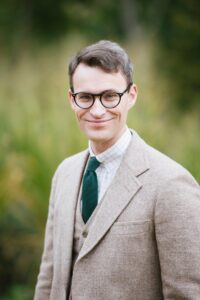
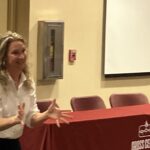
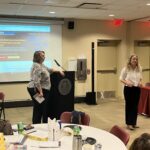
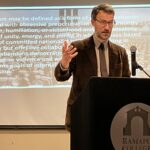
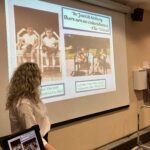
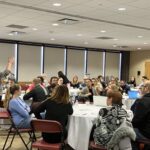
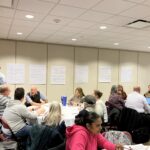
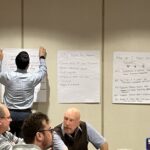
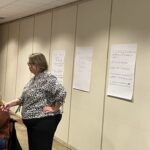
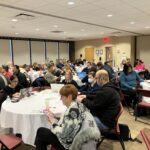
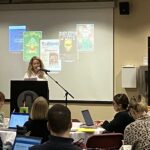

Follow Us!